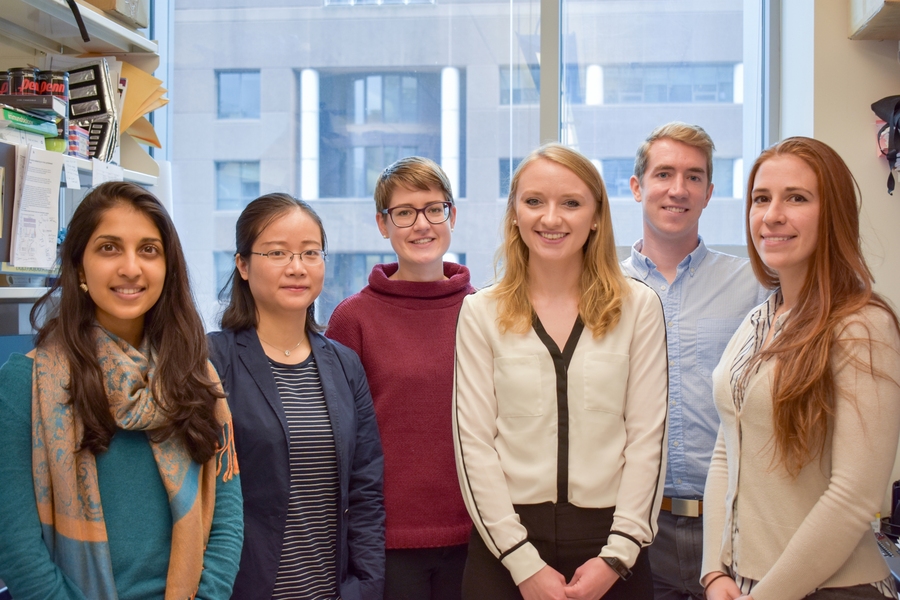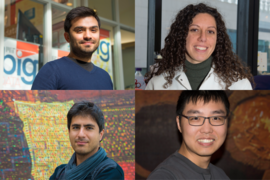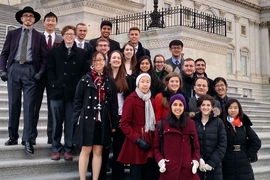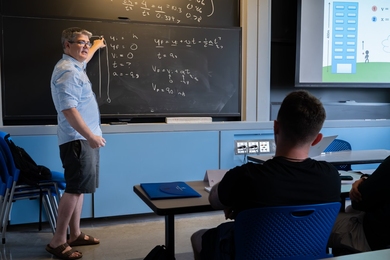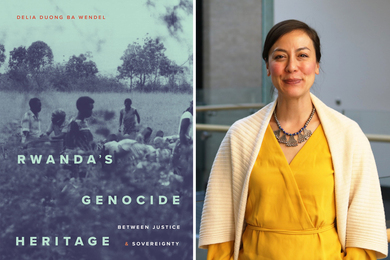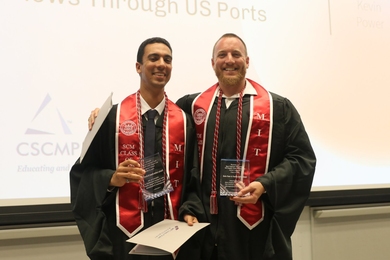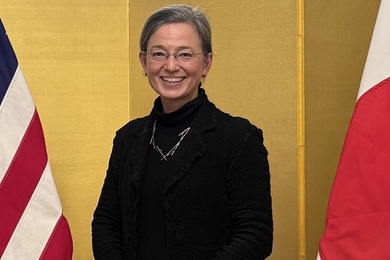The postdoctoral training period is a time when junior researchers learn what it takes to become independent investigators. Pursuing a career in biomedical research can be highly demanding, and young researchers often feel challenged to find time to reflect on various career possibilities, explore options of interest, develop associated professional skills, and still maintain an acceptable work-life balance.
At MIT, about 1,500 postdocs are appointed to more than 50 departments, and serve as vital members of the Institute’s research workforce.
“Expectations for faculty members, particularly in the biomedical sciences, have evolved quite significantly from what they used to be say 10, 20 years ago,” says Sangeeta N. Bhatia, the John J. and Dorothy Wilson Professor of Health Sciences and Technology and Electrical Engineering and Computer Science, and the inaugural director of the Koch Institute’s Marble Center for Cancer Nanomedicine. “Professors are not just managing the lab and classroom mediums, but also serving on advisory boards and launching new research and commercial ventures. They also advocate for evidence-based policy and engage with the wider public about the implications of their research.”
The Marble Center, established through a generous gift from Kathy and Curt Marble ’63, launched the Convergence Scholars Program on National Nanotechnology Day on Oct. 9, 2017, a date that corresponds to the scientific notation — 10-9 — that designates the nanoscale. The aim of the program is to help postdocs hone the skills they need to succeed within and beyond the academic setting.
When divergent needs converge
The brainchild of Tarek R. Fadel, assistant director of the Marble Center, the Convergence Scholars Program is designed to offer career development opportunities that address the needs of the individual trainee and the ever-changing landscape of research. For example, monthly workshops focus on topics such as science communication and management, and leadership of scientific workplaces.
“Virtually all postdocs contemplate careers in academia. I typically hear trainees ask for advice on how they will recruit new scientists, develop budgets, manage multiple and often overlapping projects, and resolve potential conflicts between collaborators,” Fadel says. “We want our young scientists to think about these issues early in their training and to grow a wide network of mentors on whom they can rely during this transitional phase of their career.”
Jacob Martin, a Convergence Scholar in the laboratory of Koch Institute Associate Director Darrell Irvine, a professor of biological engineering and of materials science and engineering, recalls his apprehension about funding and other challenges associated with an academic research career.
“One of the reasons I felt encouraged to apply for the program was that, beyond acknowledging that I should consider ‘alternative’ careers, I didn’t know where to start,” Martin says. “Of course, I knew of some of the options in the biopharmaceutical industry, but I really wanted to put everything back on the table and consider other careers that I might never have realized would be available and enjoyable for me. This idea seemed exciting but also daunting — frankly, overwhelming.”
Fadel adds that “one of the key aims of the Convergence Scholars Program is to serve as a centralized resource, connecting postdocs with training and opportunities without requiring the time or anxiety of having to figure everything out themselves.”
The program also offers insight and inroads into careers in industry, health care, the policy arena, or with federal research or regulatory agencies. In order to offer this wide variety of resources for participants, the program partners with organizations around MIT and off campus, including the MIT BE Communications Lab and Harvard Catalyst. The program also engages a network of mentors from the pharmaceutical industry, the government sector, and elsewhere.
Taking full advantage of the array of opportunities available, recent Convergence Scholar Briana Dunn worked with the education and outreach team at the National Nanotechnology Coordination Office and volunteered doing hands-on nanotechnology experiments with children and families at a national science event. She also explored options in health care and joined the American Medical Writers Association, enrolling in courses to learn more about medical writing and even earning a credential.
“I was lucky that I had the opportunity to explore my interests in an organized and thoughtful way,” says Dunn, then a member of the laboratory of Angela Belcher, the James Mason Crafts Professor.
Off to a strong start
Six postdocs were selected for the inaugural class of Convergence Scholars, one from each of the Marble Center’s member labs:
- Natalie Boehnke, Hammond Laboratory
- Briana Dunn, Belcher Laboratory
- Liangliang Hao, Bhatia Laboratory
- Jacob Martin, Irvine Laboratory
- Ritu Raman, Langer Laboratory
- Kaitlyn Sadtler, Anderson Laboratory
In addition to training opportunities, each scholar also receives a stipend to use for professional activities and travel. This year, such activities ranged from volunteering at the U.S. Science and Engineering Festival and Family Science Days held as part of the annual meeting of the American Association for the Advancement of Science (AAAS), to participating in workshops on leadership in bioscience at the Cold Spring Harbor Laboratory, and science policy at AAAS.
Although the first year of the Convergence Scholars Program has not yet come to a close, participants say through their reviews that the initiative is on the right track. Dunn, for example, has found a job in industry that combines several of her interests.
“Through CSP, I was able to explore my options more deeply and in a way that really focused on my professional development,” she says.
Bhatia and Fadel envision that the next cohort — to be announced in October — will also include postdocs from other centers within the Koch Institute for Integrative Cancer Research at MIT, where the Marble Center is housed.
